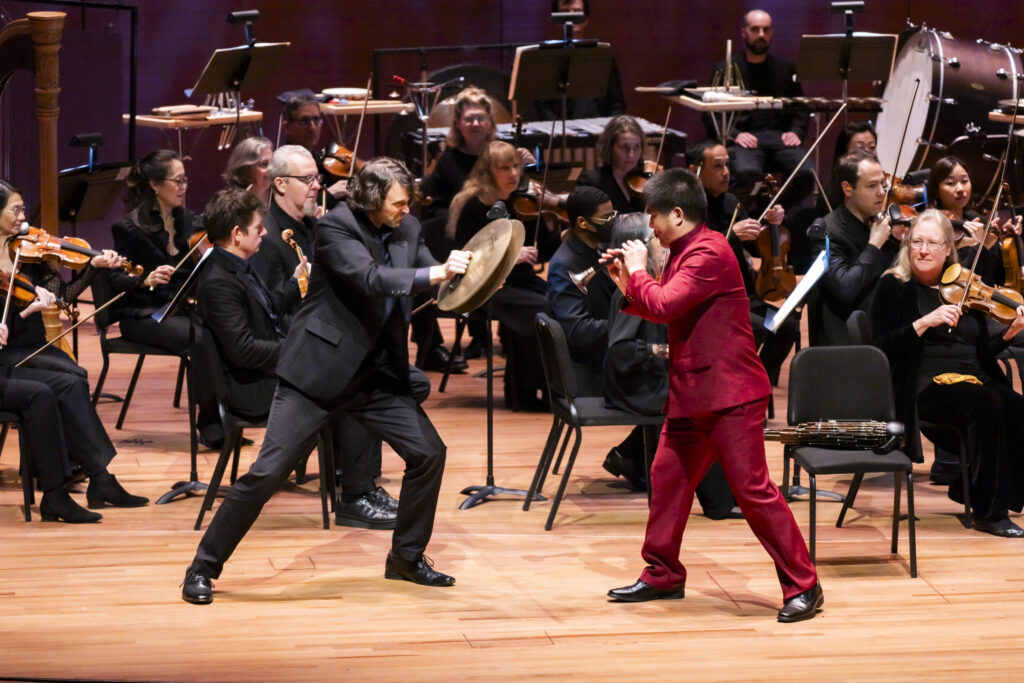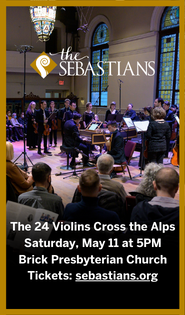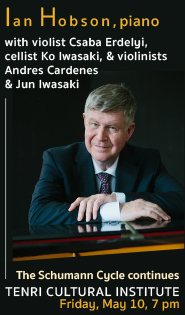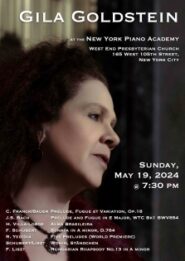Azrieli Prize winners mix Biblical depths with Canadian birdsong

A fresh breeze from up North blew through Alice Tully Hall Thursday night, as the Orchestra of St. Luke’s, conducted by Steven Mercurio, gave U.S. premieres of three works by Canadian composers, winners of the 2022 Azrieli Music Prizes.
Now celebrating its 10th anniversary, the Toronto-based Azrieli Foundation has conferred three prizes biennially: a prize for an existing work of Jewish music, and commissions for new works on Jewish and Canadian subjects. (A fourth prize, a commission for international music, was added this year.)
Thursday’s program emphasized lyricism, with the classical Persian vocalist Sepideh Raissadat conjuring epic scenes in Iman Habibi’s Shāhin-nāmeh and soprano Sharon Azrieli exploring the emotional world of the Psalms in Aharon Harlap’s Out of the depths have I cried unto Thee, O Lord. The evening closed with the multifarious songs of nature in Rita Ueda’s Birds Calling…from the Canada in You.
Instrumental display was not neglected either, as singer Raissadat manipulated her setar, a banjo-like instrument, in dramatic improvisations, and soloists Naomi Sato and Zhongxi Wu tried to match the virtuosity of birds on their instruments, shō and suona/sheng respectively.
WQXR radio host Elliott Forrest served as emcee, briefly describing the Foundation and introducing the works to be played.
Composer Habibi taught himself to read 14th-century Judeo-Persian script in order to translate the poetry of Shahin Shirazi into classical Persian. He then arranged it as a song cycle that comments on the story of Queen Esther—much on the minds of Jews during this season of Purim–using imagery from the classic Persian epic The Book of Kings. The composer aimed, he wrote, for a multicultural musical setting that celebrated “the close affinity that has existed historically between Persians and Jews dating back millennia.”
The orchestral Prelude to Shāhin-nāmeh was a study in contrasts, stark chords alternating with soft mutters, stretchy strings with astringent woodwinds. Then singer Raissadat stepped to the microphone to set the scene for the poet Shahin and his encomium to the Jewish queen in a conversational yet expressive, microtonally inflected vocal style. In movements to texts outlining the queen’s beauty, the villainy of Haman, and the prayer of Mordecai, the orchestra was by turns dance-like, stormy, stately and reflective in support of Raissadat’s colorful narrative and soulful setar playing.
Composer Habibi came onstage during the bows, the first of the three composers who did so to acknowledge the applause for their work.
Soprano Azrieli—who is also a board member of the Azrieli Foundation and the daughter of its founder—stood well back from the microphone to accommodate her more operatic vocal style in composer Harlap’s Hebrew psalm settings. The 2008 work’s five movements brought together six psalms that expressed, the composer wrote, “the belief in God’s strength to overcome all adversity and to protect us in times of need.”
Today’s headlines from the war in Gaza couldn’t be ignored as one heard the emotional journey of the psalms, from the mournful tread of the eponymous Psalm 130 (“Out of the depths”) to the climb out of despair in Psalms 120 (“In my distress”) and 23 (“The Lord is my shepherd”), notable for its contrasts of protest and contentment, and for especially fine orchestral setting of the solo voice.
Psalm 121 (“I will lift up mine eyes”) bookended Azrieli’s devotional monologue with a lyrical, Copland-like fanfare for horns, while Psalm 112 (“Halleluyah”) danced for joy at God’s blessings. Psalm 98 (“Sing unto the Lord a new song”) summed up the whole piece with recapitulations of mournful and urgent passages before closing on a triumphant note, crescendo.
Azrieli sang with power and a strong vibrato, sustaining lines well, and now and then rising to a fine high pianissimo. She partnered effectively with Mercurio and the well-balanced, colorful St. Luke’s orchestra.
Ueda’s tribute to the birds of Canada—as distinct from the well-known musical birds of Vivaldi, Respighi, et al.—was performed in a kind of surround-sound defined by tree-like projections onstage and some musicians stationed in the hall’s balcony orchestra and boxes. The work’s four movements began in a haze of high, indistinct bird sounds produced in part by bowed percussion instruments, joined later by other forest noises, water drops, smearing violin glissandos, and deep double-bass rumbles (are there elephants in the Canadian woods?).
Soloist Wu eventually joined in on suona, a Chinese double-reed instrument that sounded like a trumpet crossed with an E-flat clarinet, dazzling listeners with buzzes, tweets, chuffs, chortles, and an impossibly long high note on one breath that was beyond any bird known to science, maybe even Dizzy Gillespie. As the orchestra rose to an avian cacophony, a cymbal player came downstage for a contest with Wu, who chased him back to his place with suona blasts.
Wu’s brilliant solo cadenza tapered to a quiet handoff to the other soloist, Sato playing the shō, a Japanese mouth organ, and subtly imitating bird inflections. Her crescendo on cluster chords led to a gong crash, a wild orchestral tremolo, and a choo-choo accelerando cut short by a trombone blast from the balcony.
The orchestra then stopped to tune—or was it making a musical pun on those random woodsy sounds?—before embarking on a mellow andante for strings, winds, and triangle under a gentle cackle in the shō. Wu in the balcony emitted rather stentorian loon calls on the suona as the orchestra gradually dropped out and the lights dimmed, leaving only the loud loon and the undulating whine of the shō.
The piece ended in darkness with a rim shot from the percussion section, a sound alarming enough in this birdy context that emcee Forrest felt obliged to issue a trigger warning about it before the piece began.





